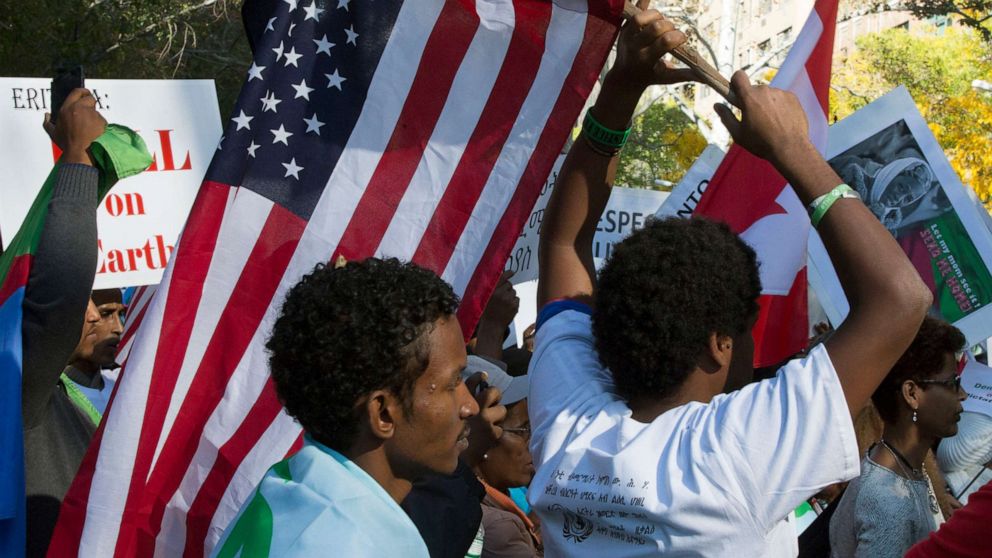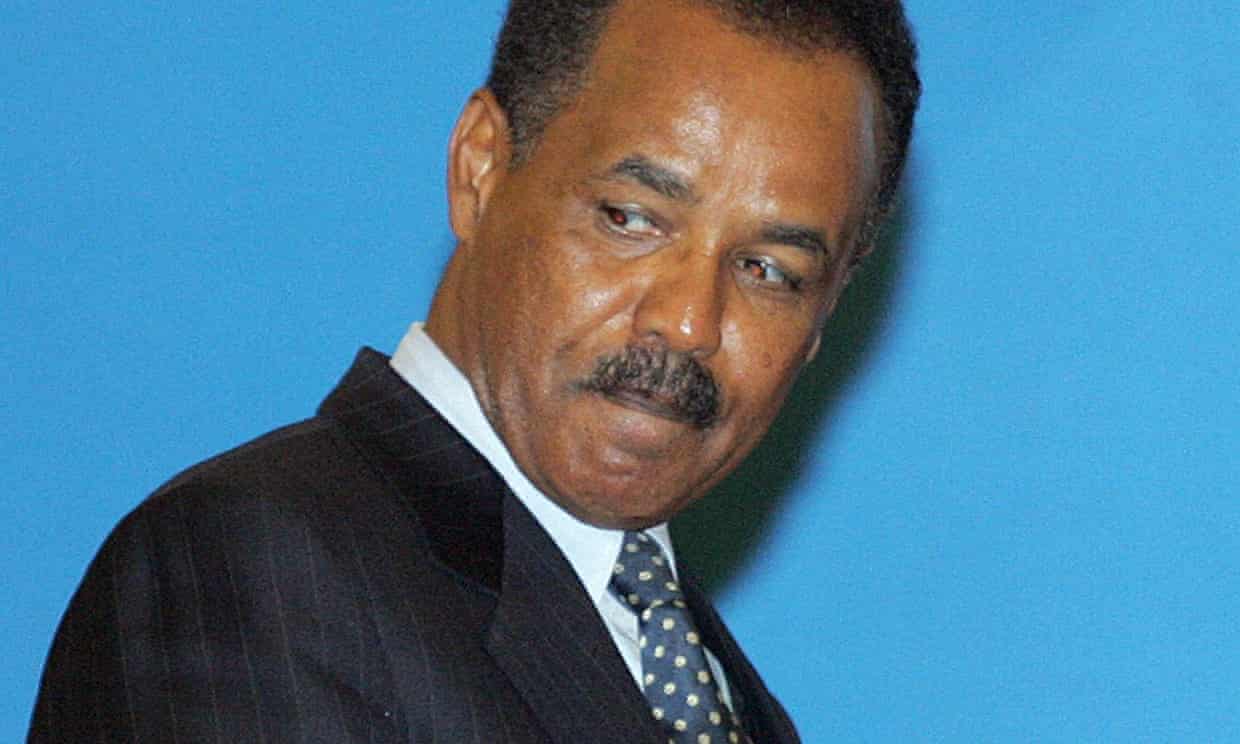28 April 2019
Habte Hagos, chairman, Eritrea Focus
The two-day London Conference looking at how a free and democratic Eritrea might emerge in the future was a fascinating, exhilarating and challenging event. It heard from Eritreans from a range of backgrounds and many viewpoints. There were inputs from experts – Eritrean and international – who have worked on and thought about the country and its people for many years.
It was an entirely positive event, which makes the negative response of the Eritrean government as sad as it is predictable. Instead of welcoming discussions about the options that are now emerging, it has attempted to belittle and dismiss. Yemane Ghebremeskel – Minister of Information – responded to the Conference by attacking Baroness Kinnock.

Glenys Kinnock is an extraordinary British politician and a very long-standing friend of Eritrea. She visited Eritrea during the liberation struggle and her books including: “Eritrea: Images of War and Peace” did much to inform the international public about the situation.
Baroness Kinnock has been a stalwart supporter of Eritrea Focus, which organised the London Conference, but sadly she was not able to organise nor to participate in these events. If she had been with us, it would have been the icing on the cake.
Ambassador Estifanos, who represents Eritrea in Japan, took a different approach.

Perhaps predictably, he attempted to link the Conference to the Tigrayans. It is a rather tired rhetoric, but it can be wheeled out to suit almost any situation, so he has adopted it again.
It is a hallmark of the current regime that they insist on keeping the Eritrean people in the dark. We are denied information about the changes going on in our country and our region. With our National Assembly suspended we have no opportunity to engage in debates about our own futures. This is quite unacceptable.
Our reply
Neither of these criticisms is accurate, but that is unlikely to convince either of these government officials. Our appeal is – rather – to the wider Eritrea public. In this regard we want to make our position clear since, as it is often said, transparency is the best disinfectant. To that end we are publishing the Conference agenda, which identifies who spoke and who led the discussions. [see at the end] The papers will also be published in due course.
Eritrea Focus is an association of Non-Governmental Organisations, human rights organisations, exile and refugee groups as well as individuals concerned with the human rights abuses in Eritrea. We campaign to expose the horrific abuses and suffering of Eritreans, both within the country and as refugees living abroad. We campaign for democratic accountability in Eritrea and the establishment of the rule of law, and actively engage with the international community in our efforts to achieve this.
The London Conference was an important part of our activities. It was attended by about 70 people – mostly Eritreans, but also international experts. Many different views were expressed.

Delegates came from Kenya, Botswana, a number of European countries and the United States as well as the UK. Funding for the Conference was kindly provided by the National Endowment for Democracy, which is funded by the US Congress, as well as private donations.
Our aim is simple: to look at the immense challenges facing Eritrea and to try to assist in the emergence of a democratic government that can replace the current dictatorship. Ours is a catalytic and facilitative role: we cannot be involved in the end of the present autocratic regime overseen by President Isaias. That task is exclusively one for Eritreans and especially for Eritreans inside the country. What we can do is assist and encourage the process of thinking about what will be required once the transition has taken place. This will be an immense project: no-one can have exclusive ownership of it. All constructive contributions should be welcome.
We are enormously heartened by recent developments inside Eritrea and amongst the diaspora. The ‘Enough’ – Yiakel movement, which the youth have taken up with such enthusiasm, is very much to be welcomed. It will fuel the changes that are coming, but as the Arab Spring so clearly demonstrates energy and hope are not enough. The future must be planned for if it is to produce the kind of government in which rights are respected and the rule of law is established. Our work is designed to be an inclusive process, sharing our work with anyone who shares our aims.
What next?
Over the next few weeks we will put together a range of working groups. These will take forward the papers that were presented at the Conference. We will begin the process of thinking about how Eritrea might be reconstructed after a transition, so that the country can have the ‘softest of landings.’ The issues will include law and the constitution, the economy, women and minority groups and regional issues. We need to identify key scholars and able Eritreans, who can critique what is being considered, but who are also prepared to step forward once the current regime has gone. We will publish the papers we have and how people can become involved.
This is a process – not an end point. But we believe that these are important considerations.
First: We are not a substitute for Eritrean political movements and organisations. We can assist, be catalytic and supportive. Only Eritreans can take the transformation of their country forward. We will try to be inclusive – including reaching out to transnational Eritrean youth in the diaspora.
Second: We do not aim for conformity but for collaboration. We accept, encourage and recognise the work of many other organisations like the Eritrean Lawyers, Eritrean journalists and other professional groups. We will accept and work with the many civic organisation emerging from the country’s women and its youth. “Unite, don’t harmonise” is a useful slogan. We aim to map Eritrea’s intellectual resources and consider how to fill the gaps.
Third: we already have some resources, although we are a small organisation and aware of our limitations. We have produced a well-received exhibition charting the history of Eritrea and we are willing to share it. We are supporting the improving media environment – including the Assena radio and television. We are also monitoring the international media, and will publish what we find.
There is a huge amount of work to be done, but we are not alone and the wind is in our sails.
See the Conference agenda here: Eritrea Conference 2019 – Programme
———————— ENDS ——————————-




























